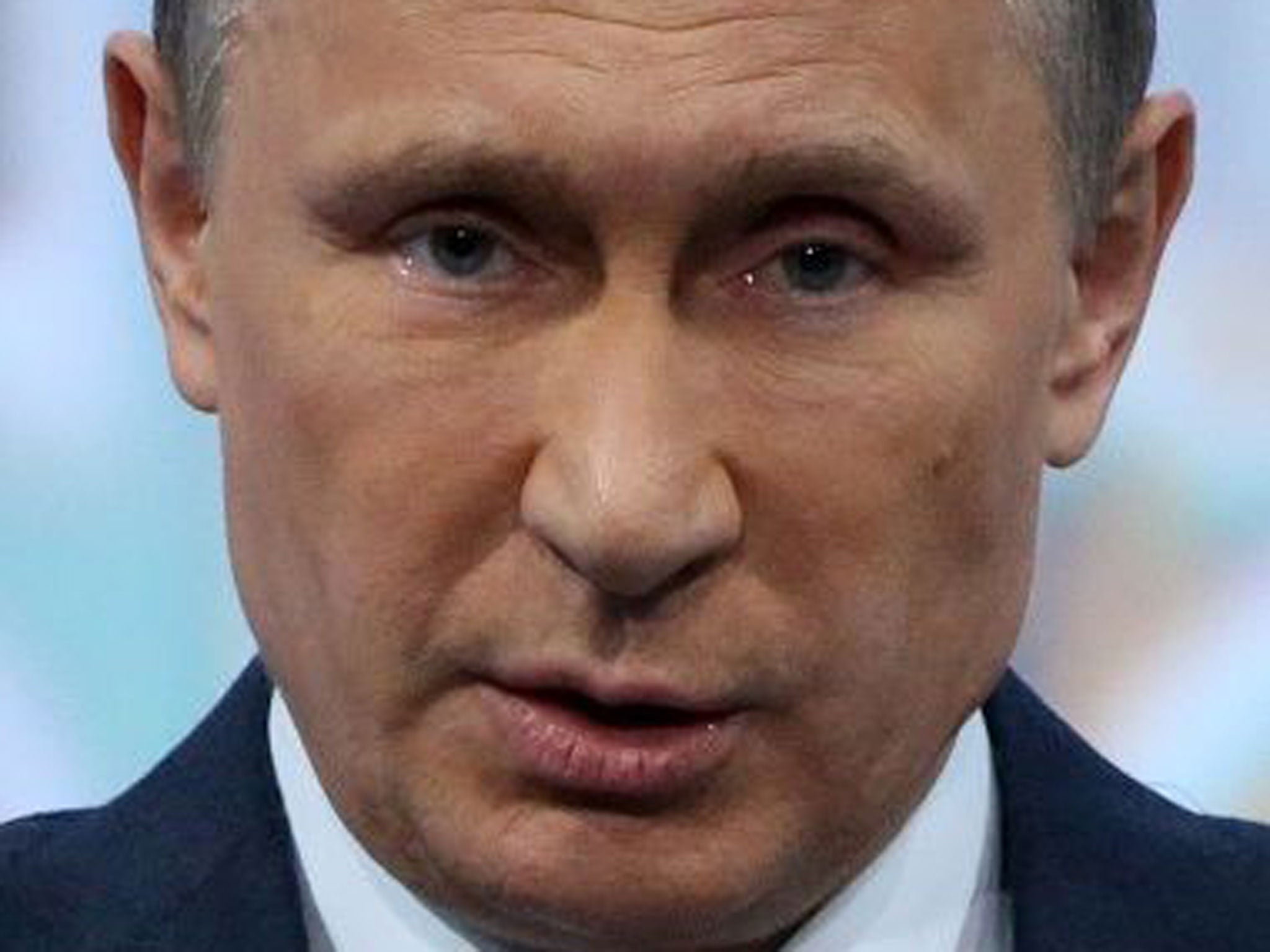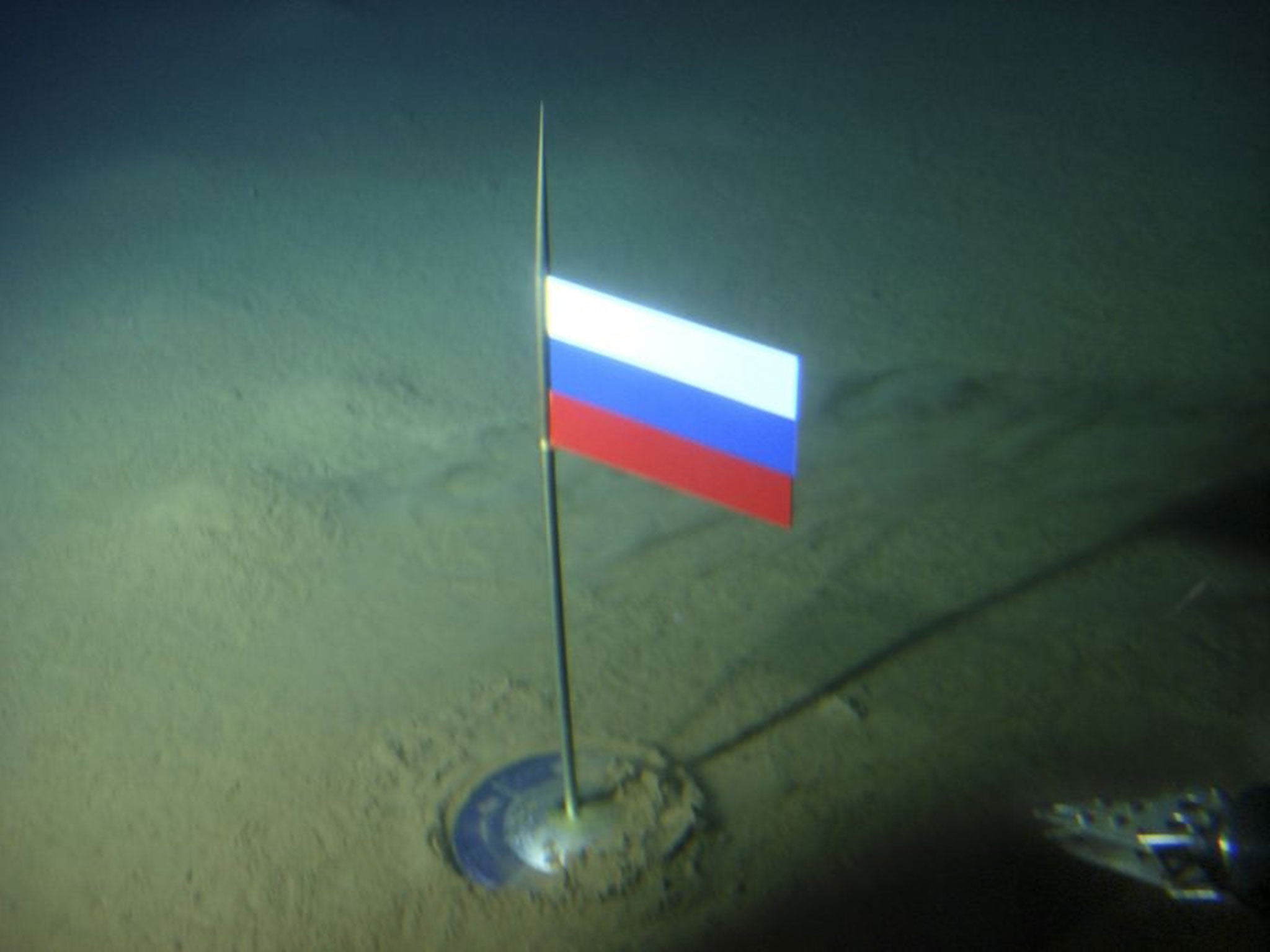Russia makes fresh bid for Arctic region which could hold quarter of the Earth's undiscovered fossil fuels
Green Peace warns nations against trying to claim the portion of the Arctic shelf

Your support helps us to tell the story
From reproductive rights to climate change to Big Tech, The Independent is on the ground when the story is developing. Whether it's investigating the financials of Elon Musk's pro-Trump PAC or producing our latest documentary, 'The A Word', which shines a light on the American women fighting for reproductive rights, we know how important it is to parse out the facts from the messaging.
At such a critical moment in US history, we need reporters on the ground. Your donation allows us to keep sending journalists to speak to both sides of the story.
The Independent is trusted by Americans across the entire political spectrum. And unlike many other quality news outlets, we choose not to lock Americans out of our reporting and analysis with paywalls. We believe quality journalism should be available to everyone, paid for by those who can afford it.
Your support makes all the difference.Russia has put forward a fresh bid to the UN to claim a contentious portion of the Arctic shelf, which is believed to hold up to a quarter of the Earth’s undiscovered oil and gas.
The Kremlin’s foreign ministry said that the government is attempting to claim 1.2million square km (over 463,000 miles) of Arctic sea shelf which stretches over 350 nautical miles (650km) from the shore.
But to secure the huge area, Russia – whose economy is heavily reliant on natural resources - must beat similar assertions by the US, Denmark, Norway and Canada, as well as international energy firms.
And as the shrinking polar ice caps make areas easier to access, the rivalry over Arctic resources will be intense.
In 2002, Russia was the first to stake a claim to the region. But the UN Commission on the Limits of the Continental Shelf rejected its bid, citing a lack of evidence.
Since then, President Vladimir Putin has made making a claim to the Arctic a top priority, and inturn expanded Moscow's military presence in the area.
In 2007, Moscow symbolically dropped a canister containing a Russian flag on the Arctic Ocean floor from a submarine at the North Pole.

The Russian foreign ministry has said the new arguments are based on “ample scientific data collected in years of Arctic research”.
Environmental group Greenpeace responded to the announcement by warning of the environmental risks of drilling for oil in the new uncovered areas.
“The melting of the Arctic ice is uncovering a new and vulnerable sea, but countries like Russia and Norway want to turn it into the next Saudi Arabia,” warned Greenpeace Russia Arctic campaigner Vladimir Chuprov in a statement.
“Unless we act together, this region could be dotted with oil wells and fishing fleets within our lifetimes," he added.
He instead called on countries seeking jurisdiction over the portion of the Arctic to come together to protect the North Pole.
Russia expects the UN Commission on the Limits of the Continental Shelf to start looking at its bid in the fall, the ministry said.
However, UN deputy spokesman Farhan Haq said the commission does not plan to meet until February or March, and it will be considered by all 193 UN member states.
Additional reporting by Reuters and PA
Join our commenting forum
Join thought-provoking conversations, follow other Independent readers and see their replies
Comments